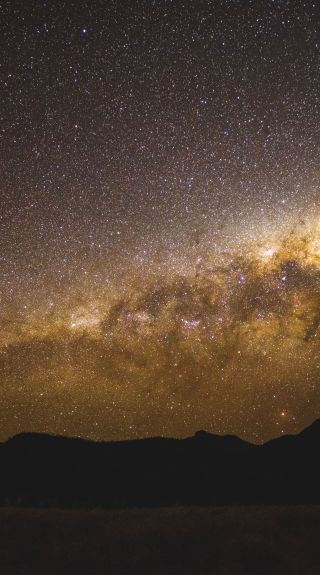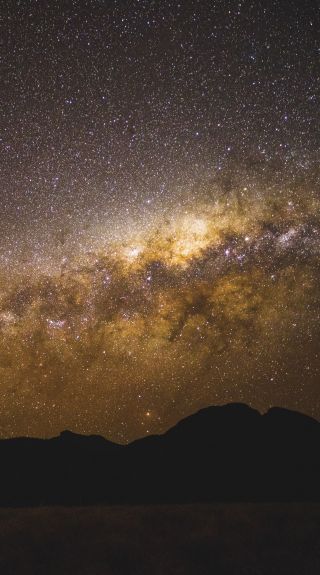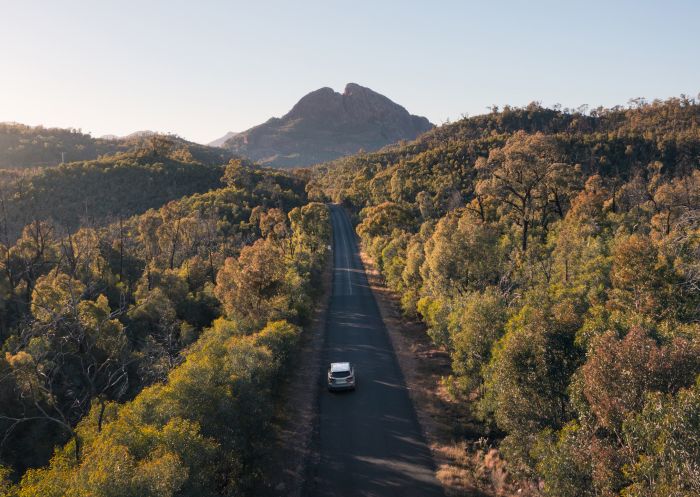

Warrumbungle & surrounds
The starry Milky Way above the volcanic silhouette, Warrumbungles



Think you’ve seen the sky? You ain’t seen nothing until you visit the Warrumbungle region, home of Australia’s first Dark Sky Park (an honour bestowed on only 13 places in the world) – where zero light pollution means the night sky is beyond vivid. Add in the jagged volcanic landscapes of Warrumbungle National Park, and you have Mother Nature at her very best.
Created over millions of years from an extinct shield volcano, the jagged volcanic silhouette of the Warrumbungles rises sharply from eucalypt-dotted ridges amid surrounding plains. Free from artificial light, the national park offers fantastic bushwalking and stargazing opportunities.
The town closest to the wilderness is Coonabarabran, known as the astronomy capital of Australia. Visit the Siding Spring Observatory to see Australia’s largest optical telescopes or gaze at the stars at the Milroy Observatory and the Warrumbungle Observatory.

Warrumbungle National Park, Coonabarabran
Head to the Australian Museum Diprotodon Exhibition to see the skeleton of the largest marsupial to have ever lived. A short drive northeast of here is the vast Pilliga Forest. Pop into Pilliga Pottery for lovely gifts or a master class.
Coonamble, northwest of Coonabarabran, is known as the nickname capital. Billboards on the main street are adorned with portraits of local characters with their nicknames – the unconventional Nickname Hall of Fame. The town also hosts Australia’s biggest combined rodeo and campdraft every June long weekend.
On the other side of the national park is the historic town of Gilgandra and the tiny village of Tooraweenah, which is the southern gateway to the Warrumbungles. Gilgandra is famous for its windmills and its significant WWI history. Take a scenic drive through the region and into the national park.

Warrumbungle National Park, Country NSW
The Warrumbungles is around a two-hour drive northeast of Dubbo, which is a five-hour drive from Sydney. You can also fly to Dubbo and rent a car at the airport. Alternatively, drive to Coonabarabran via the Blue Mountains or Hunter Valley.
Enjoy a bird's-eye view of the stunning Warrumbungle National Park in Outback NSW, including the incredible views along the Breadknife and Grand High Tops Walk, the rugged Belougery Split Rock and Sliding Spring Observatory.
Stay connected to Visit NSW for all the latest news, stories, upcoming events and travel inspiration.
All the insider news, tips and inspiration you need to plan your next trip, delivered straight to your inbox.
Sign UpVisitNSW.com is the official tourism site for Destination NSW.
© Copyright 2025 Destination NSW. All rights reserved